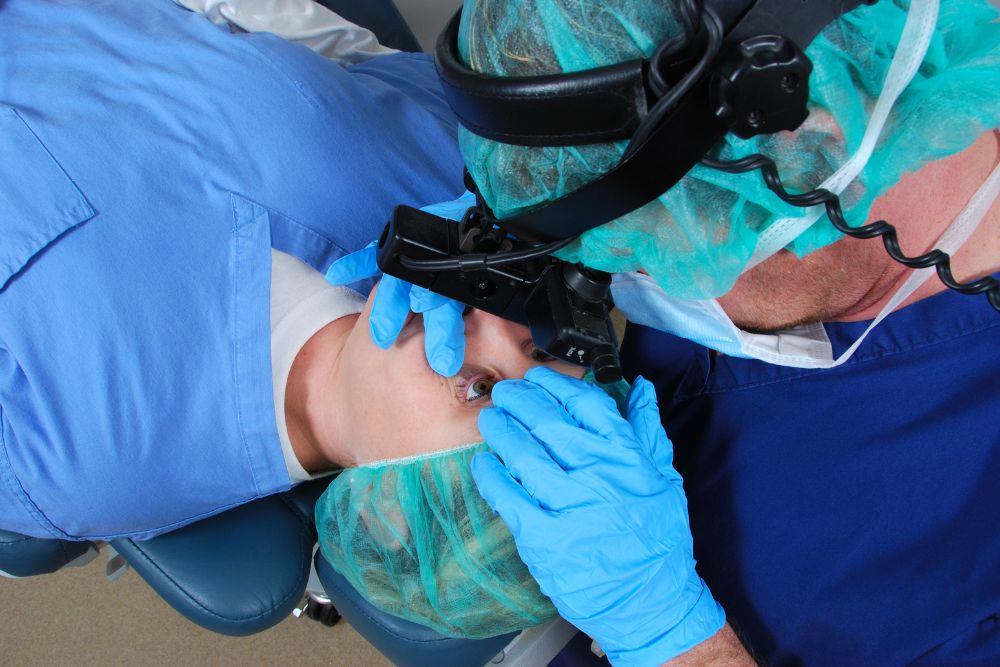Retinal Surgeon Insights: 3 Retinal Conditions that Require Surgery

Originally published by Palmetto Retina Center
While most retinal conditions are often treatable with medications or minimally invasive procedures, more serious or advanced conditions can require surgery to offer the best possible outcome. In this blog post, we’ll explore three retinal conditions that may require surgery, as well as the surgical procedures themselves.
Wet Age-Related Macular Degeneration (AMD)
There are two types of age-related macular degeneration (AMD) — dry and wet. The dry type is more common and less serious than the wet type. With wet AMD, abnormal blood vessels grow in the macula (the central portion of the retina), breaking and leaking fluid. If left unaddressed, wet AMD can lead to permanent vision loss. In many cases, retina specialists perform laser photocoagulation, a type of eye surgery.
Laser Photocoagulation
During laser photocoagulation, a retina surgeon uses an intense laser beam to burn and seal abnormal blood vessels in the eye to stop blood and fluid from continuously leaking into the retina. Laser photocoagulation may be recommended to you if your abnormal blood vessels are in tight, well-defined clusters, you’ve experienced abrupt vision loss, or you don’t respond to other treatments.
Retinal Tears and Detachment
Retinal tears occur as a result of a small break in the thin retinal tissue, while retinal detachments happen when the retina is pulled out of place. Retinal tears are typically treated with a laser or freezing procedure to stabilize and seal the tissue. Detachment, however, is considered more serious and requires immediate surgical intervention to prevent permanent vision loss. Two common types of surgery for retinal detachment include vitrectomy and scleral buckle.
Vitrectomy
The vitreous is a gel-like substance that fills the middle portion of the eye. During a vitrectomy, a surgeon removes the vitreous and replaces it with another solution. Depending on the seriousness of your condition, you may need a second surgery. After treatment, it can take a few months for your vision to improve.
Scleral Buckle
Scleral buckle surgery involves placing a silicone band (scleral buckle) around the eye to gently indent the wall of the eye, bringing the detached retina back into contact with the underlying tissue. This helps seal the retinal tear and promote reattachment.
Diabetic Retinopathy
Diabetic retinopathy is a diabetes complication that can damage the blood vessels of the retina, causing them to swell, leak, or close, stopping blood from passing through. Sometimes abnormal new blood vessels grow on the retina. Mild diabetic retinopathy doesn’t usually require intensive treatment, but more advanced forms of the condition may require laser treatments or a vitrectomy.
Top-Tier Retinal Care Starts Here
Retinal conditions such as wet AMD, retinal tears, detachments, and diabetic retinopathy can steal your vision and negatively impact your quality of life. For advanced retinal care in South Carolina, turn to the retina specialists at Palmetto Retina Center. Our retina surgeons have the skills and experience necessary to give our patients the best treatment outcomes possible.
For more information or to schedule an appointment with Palmetto Retina Center or any of the retina specialists in the RCA network, contact us today.